This La Jolla Startup Makes Millions Selling Swimming Pool Inflatables
Interviewing Float Factory Co-Founder Patrick Frank to discuss how to innovate in a competitive industry, building viral products, and how to capitalize on internet trends.
Learn from San Diego's greatest entrepreneurs and companies. Every week, I write a newsletter breaking down the business and money in San Diego. Join hundreds of entrepreneurs and investors by subscribing below.
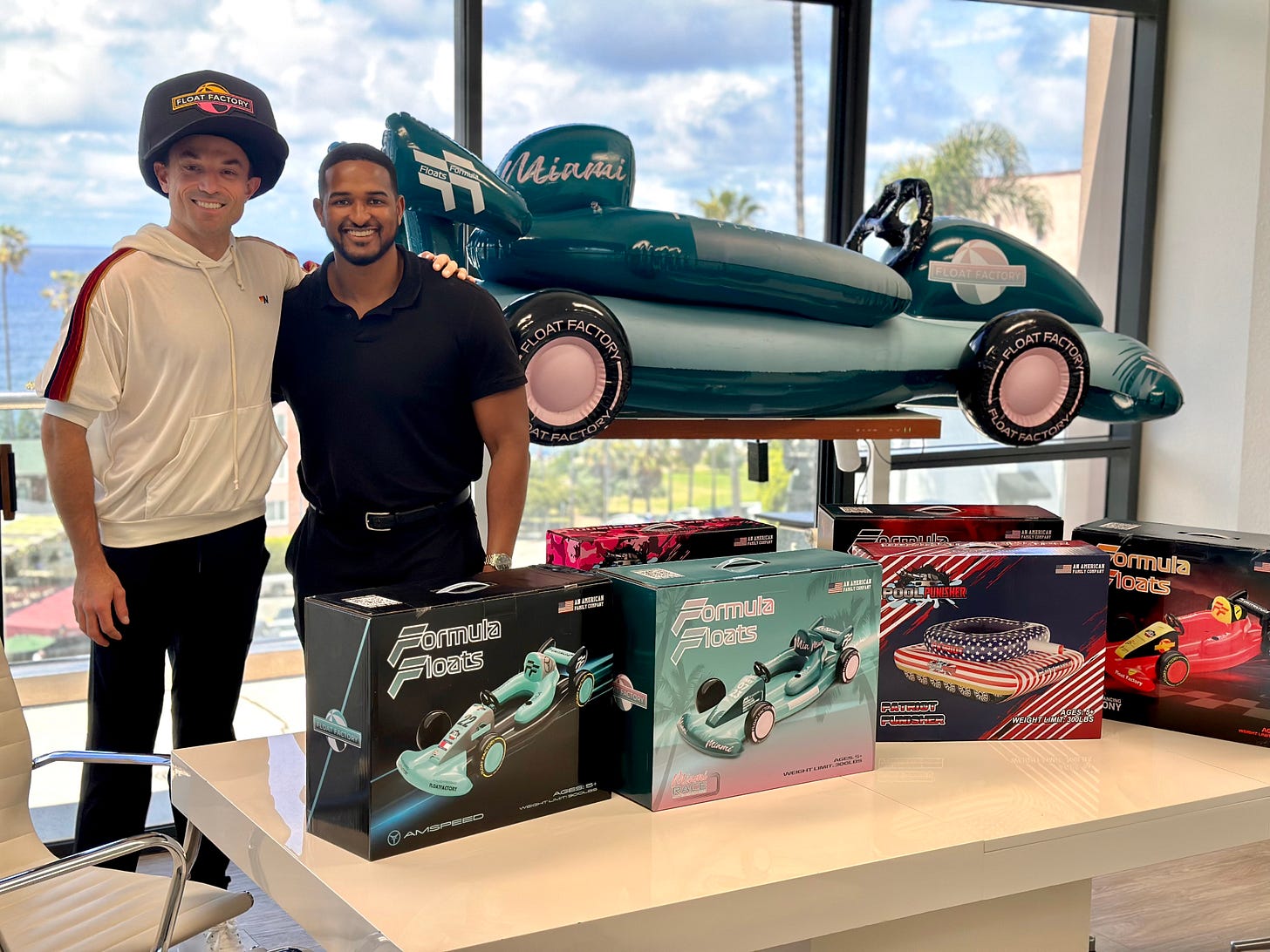
Patrick Frank, is building a lucrative startup hidden in La Jolla’s backyard.
The company he helped co-found called Float Factory is a rapidly growing pool inflatable business whose brand has exploded online in the last two years.
Earlier this year, the team moved into one of the hottest offices headquartered in La Jolla Cove, which was previously occupied by Pura Vida, a local startup that was acquired for $130 million last year.
Please enjoy this breakdown of Float Factory.
High-Level Overview
Founded in 2021, Float Factory is best known for its interactive pool inflatables.
What makes it special? Nearly every product release has gone viral and the company has inked a several big named partnerships this past year including Formula One’s Miami Grand Prix.
The 2-year-old company brought in more than $1 million in annual revenue in its first year and is on track to hit $5 million this year. Gearing up to execute its omni-channel approach, their goal is to become a household brand name.
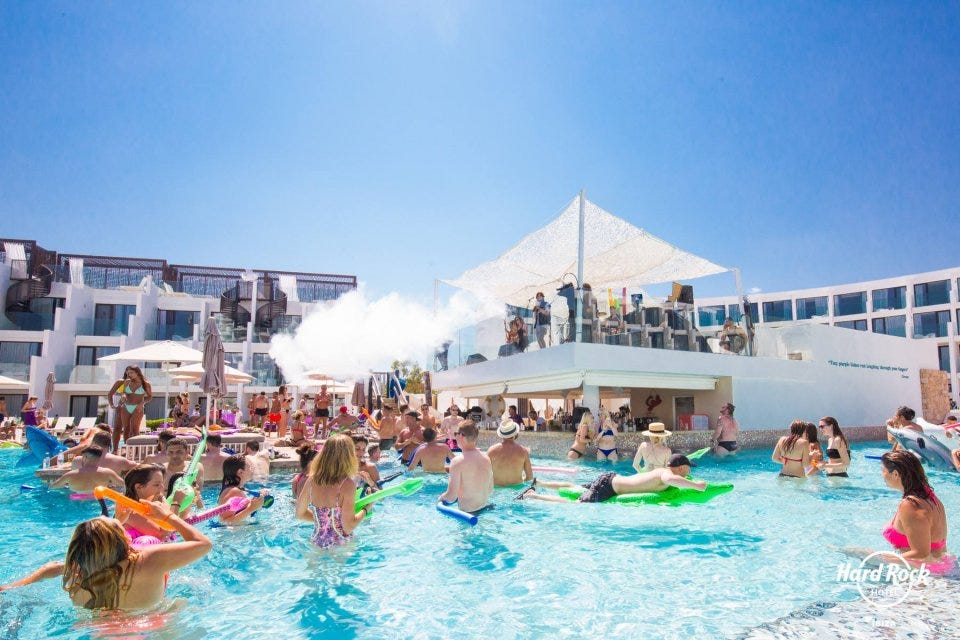
Founding Story
What started as a nights and weekend side project, morphed into a 7-figure operation without raising a single dollar from outside investors.
The origin story: Float Factory co-founders Patrick Frank and George Kramb developed a product called the “Pool Punisher,” and eventually found success on Amazon after selling 5,000 units in a single day.
The incident was “a light-bulb moment” for the young company.
"We realized that Pool Punisher was just a product not a company. We knew that we wanted to make this bigger and launching Float Factory was our way to add more crazy product ideas to the mix. We leveraged a good idea, that became a product, went viral, and turned it into something bigger." said Patrick Frack, co-founder of Float Factory.
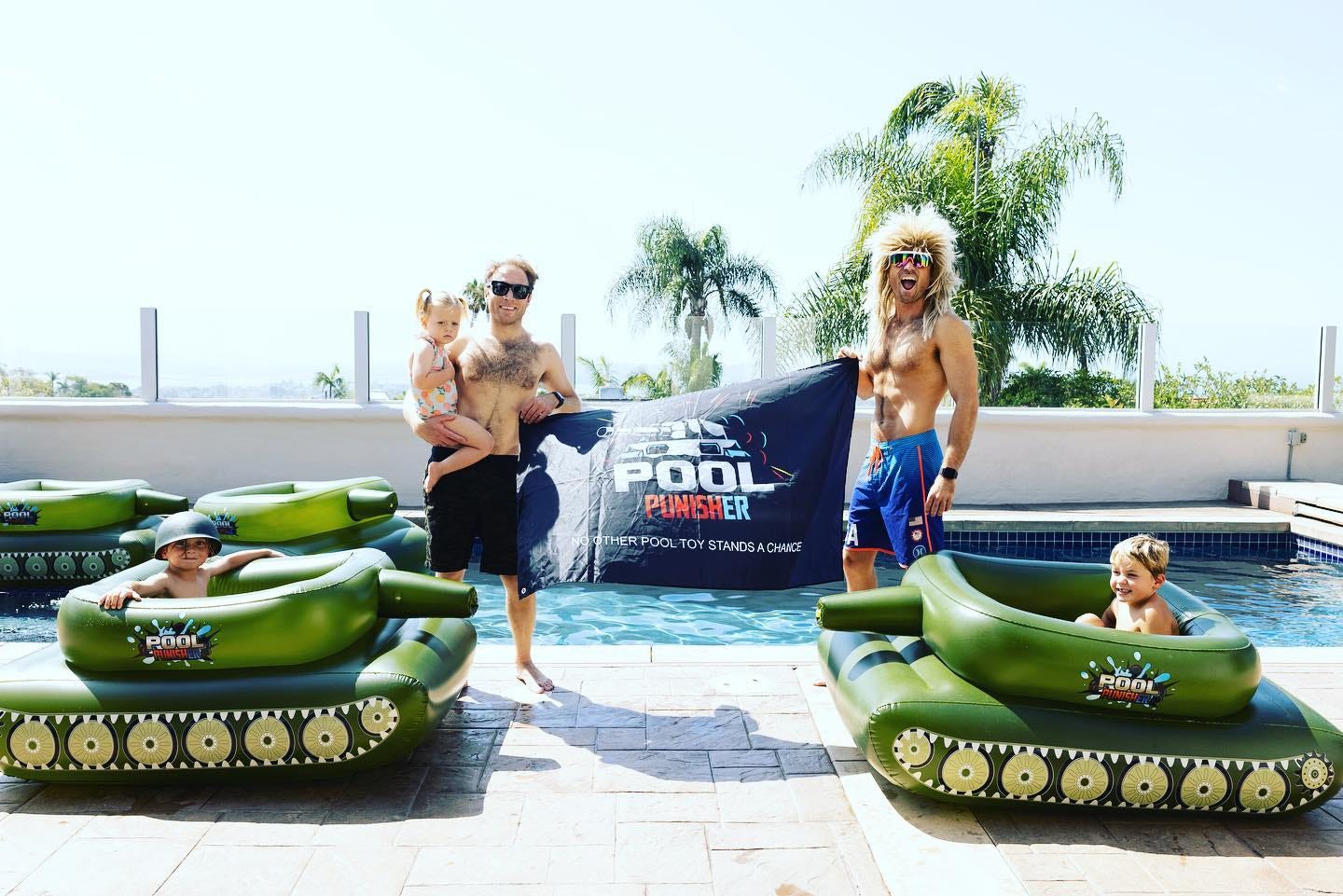
The Product Line
Float Factory’s first product, was a military-style tank design, with a water cannon.
Today, it has more than 10 different product offerings. The San Diego-based lifestyle brand products’ range between $50 and $160.
The average pool owner spending over $500 every year on new pool accessories, said Frank, adding that it is a big market despite higher price points.
For example, Los Angeles-based Funboy whose customers include A-list celebrity Kylie Jenner and fashion mogul Rihanna, sells an island-style float priced at $279.
“The Punisher float has a cannon that blasts water, the Formula Floats will have a motor to race around the pool, and the others … have the ability to talk. We wanted to be different and that's what led us to emerge as a market creator in the space,” said Patrick Frack, co-founder of Float Factory.
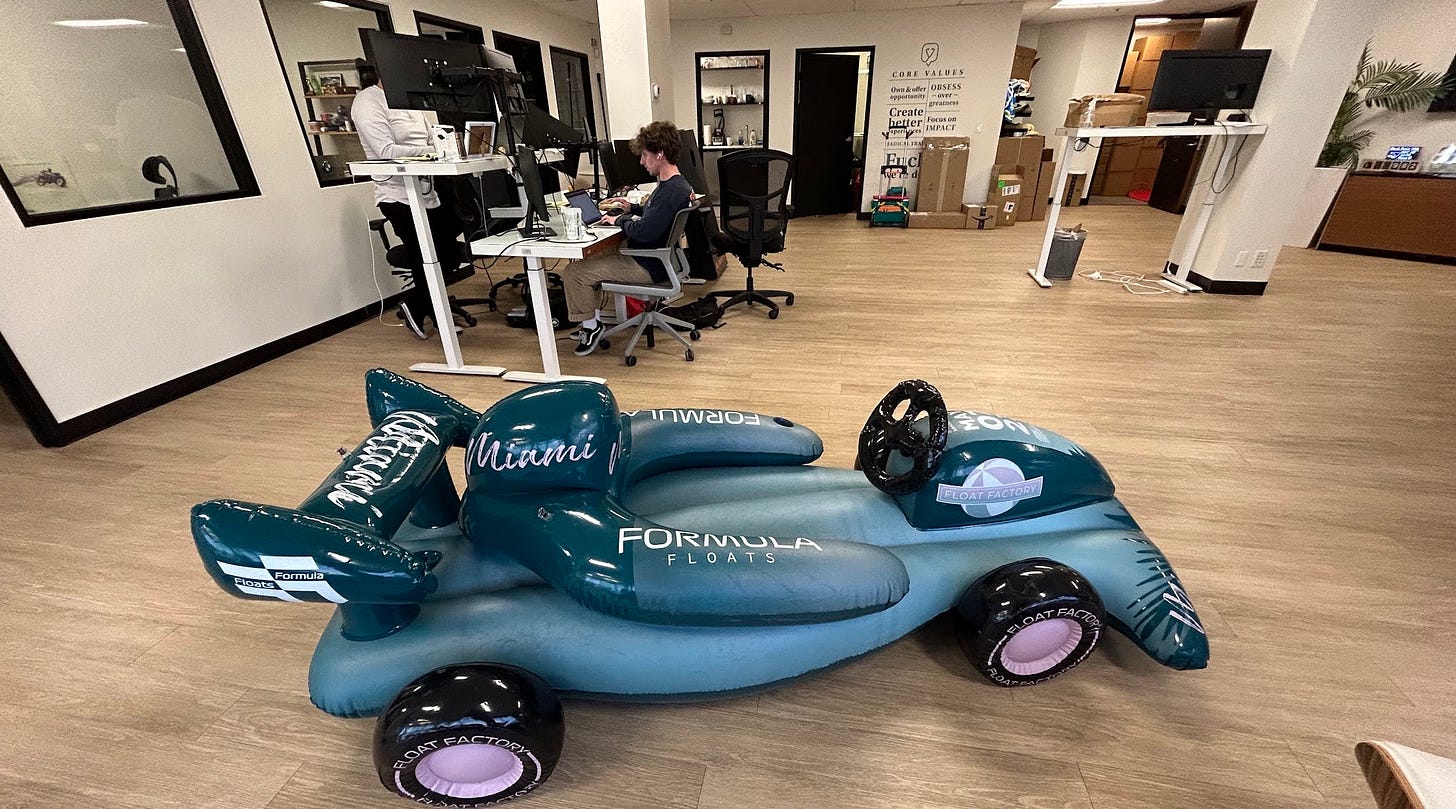
Dealing with Infringements
Float Factory found itself in a difficult legal battle in the summer of 2021, losing as much as $20,000 a day in sales to various knock-off Amazon sellers.
The co-founders went to companies in which they claimed “hawked infringement” on its design from Amazon.
The sellers not only infringed its designs, but it also its website. The differences between products were slight but noticeable.
The co-founders reached out to the sellers and were ignored, until they filed counterfeit and copyright claims.
The online retailers removed product images taken by Float Factory, but co-founder Frank noted that getting Amazon to take action, required patience.
“We’ve seen maybe 1,000 different knockoff companies already. We didn’t know how fast knockoff companies worked and they started stealing our business,” said Patrick Frank, co-founder of Float Factory. “Today we track Amazon listings and keep a law firm on retainer to investigate any findings.”
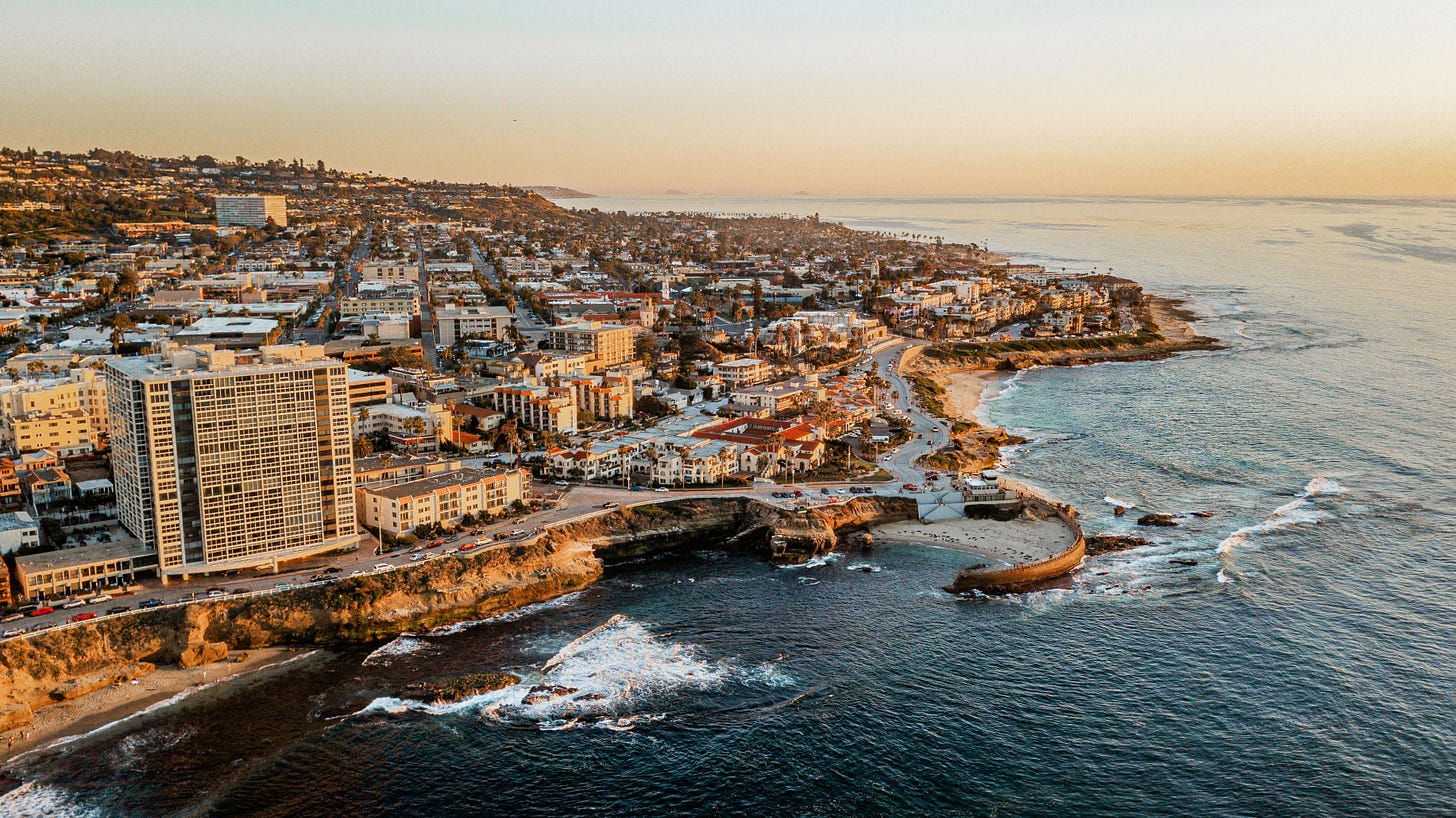
Growth Strategy
Float Factory is primed to expand further — not just with additional products, but exploring new channels outside of Amazon and paid social media platforms.
From a retail standpoint, Float Factory wants to partner with smaller family-owned companies opposed to larger retail giants.
“We believe having an omni-channel approach is critical to expand your business and be top of mind no matter where consumers are shopping,” said Frank.
As competition grows, the team believes they have an edge and don’t see their business as a short-term fad.
“The most exciting project we’re currently working on is building the waterproof, remote-controlled pool float. Its rechargeable and the first of its kind. We have everything patented and it’s in the final stage of development,” said Patrick Frank, co-founder of Float Factory.
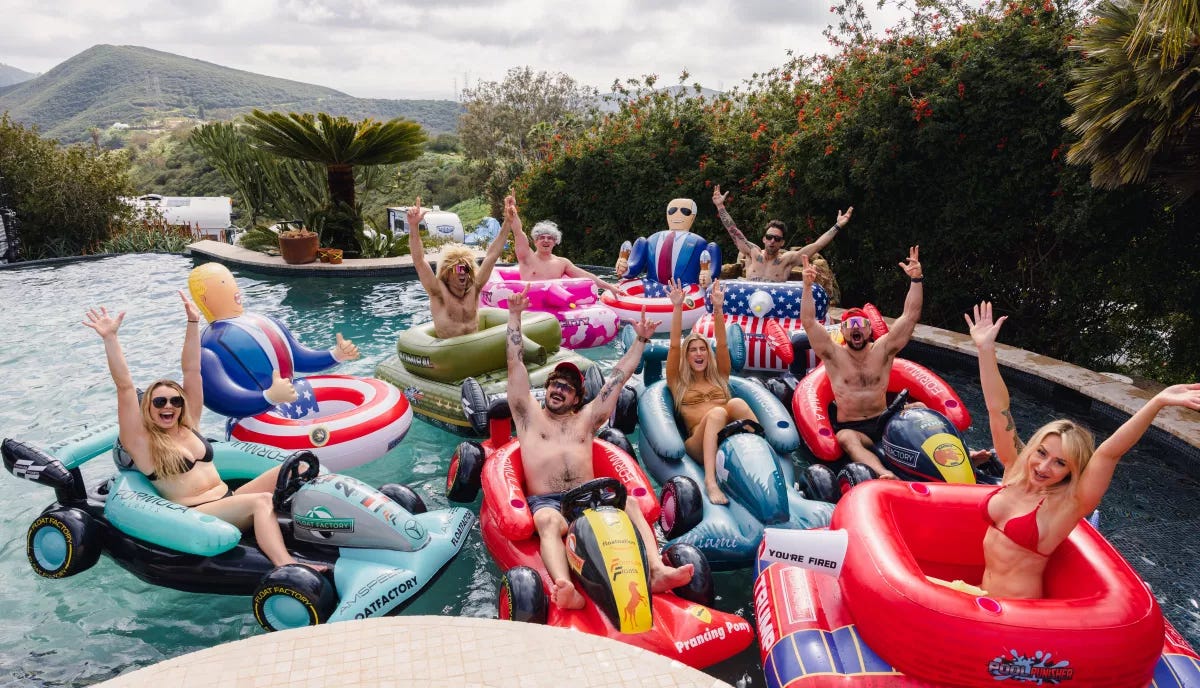
Looking Ahead
Float Factory is currently working to launch a new winter collection and also plans to launch Aston Martin and McLaren F1-inspired floats later this year.
A lean team with under five employees, Frank shared he often works 20 hour days, brainstorming new design ideas and wearing multiple hats — a common workload for a bootstrapped company in the early days.
Only time will tell whether Float Factory can find “unicorn-level” success and can rake in ten of millions selling pool inflatables.
“Despite it being a float company that many would take as all fun and games, I often sleep in our offices. I work 20 hours a day, six days a week, every single week. I love what I do because it allows me to still bring out my inner kid while always challenging myself with my work to be better everyday.”
Feedback helps improve SD Founders. How did you like this week's newsletter?




